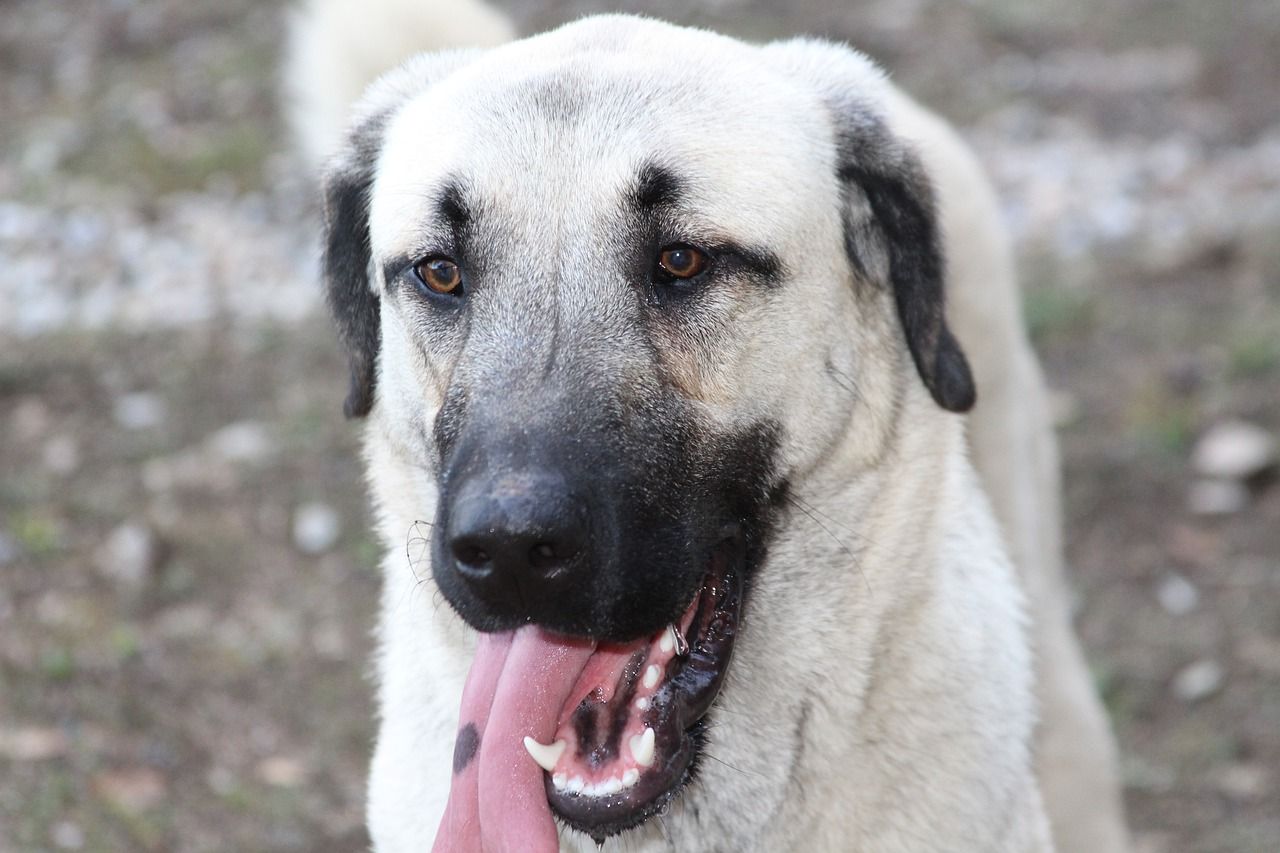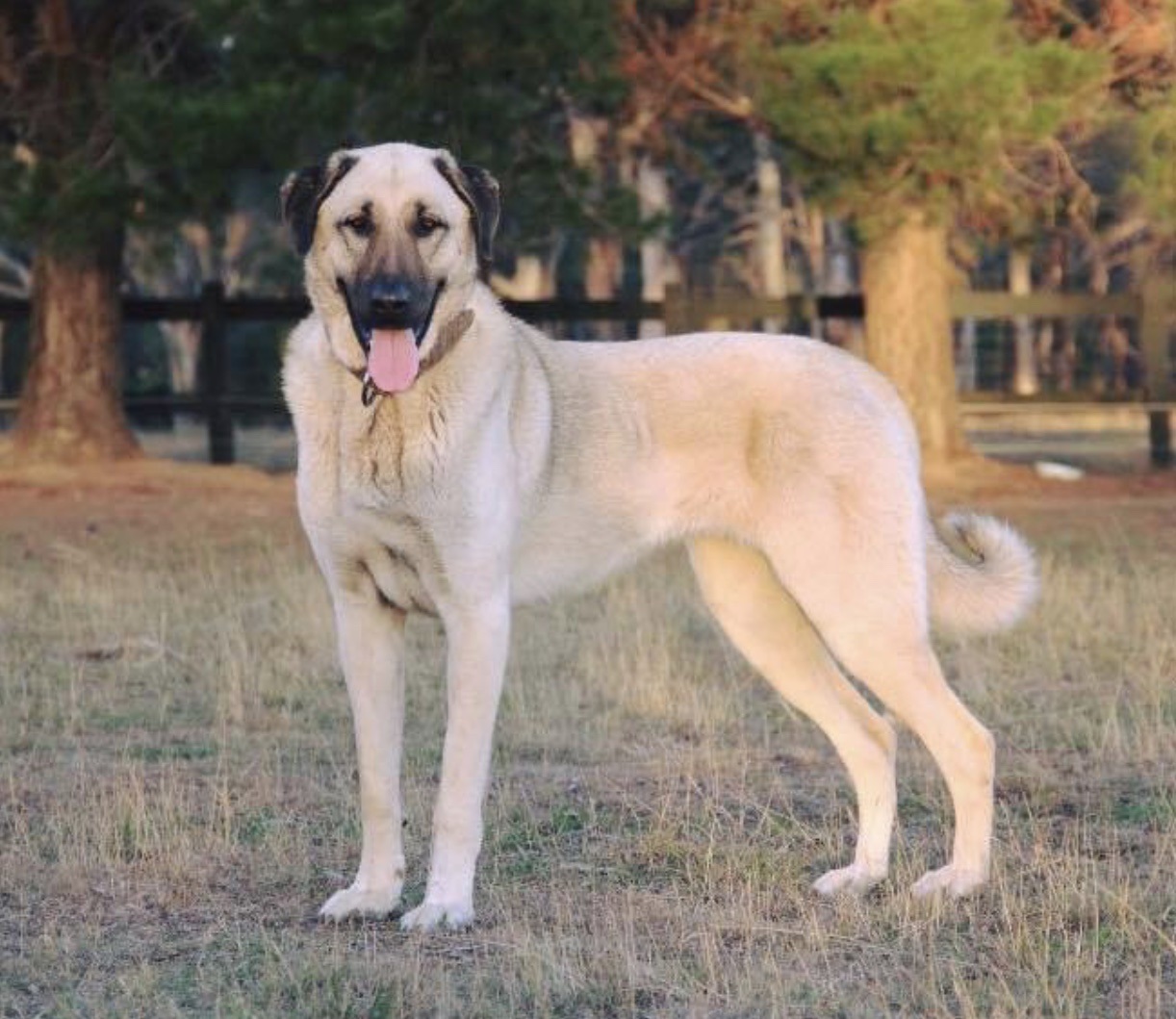When it comes to working dogs, the Kangal Shepherd Dog stands out as one of the most impressive and historically significant breeds in the world. Originating from Turkey, this powerful canine has been bred for centuries to protect livestock and property with unmatched loyalty and courage. If you're looking for a breed that combines strength, intelligence, and a protective nature, the Kangal Shepherd Dog might just be the perfect companion for you.
The Kangal Shepherd Dog, also known as the Kangal Anatolian Shepherd, is more than just a pet. It is a working breed with deep roots in Turkish culture, where it has been trusted for generations to guard flocks against predators like wolves and bears. This breed's reputation as a fearless protector has earned it recognition worldwide, making it an ideal choice for those seeking a loyal and reliable guard dog.
In this comprehensive guide, we will explore everything you need to know about the Kangal Shepherd Dog, from its history and physical characteristics to its temperament and care requirements. Whether you're a seasoned dog owner or a first-time enthusiast, this article will provide valuable insights into why the Kangal Shepherd Dog is considered one of the finest guardian breeds in existence.
Table of Contents
- History and Origins of Kangal Shepherd Dog
- Physical Characteristics of Kangal Shepherd Dog
- Temperament and Personality
- Care Needs and Requirements
- Training Tips for Kangal Shepherd Dog
- Health Considerations for Kangal Shepherd Dog
- Kangal Shepherd Dog vs. Other Breeds
- Adopting a Kangal Shepherd Dog
- Frequently Asked Questions
- Conclusion: Is the Kangal Shepherd Dog Right for You?
History and Origins of Kangal Shepherd Dog
The Kangal Shepherd Dog's history is deeply intertwined with the rich cultural heritage of Turkey. Originating from the Sivas province in Central Anatolia, this breed has been guarding livestock for over 6,000 years. Known locally as the "Kangal Çoban Köpeği," these dogs were specifically bred to protect sheep and goats from predators like wolves and bears.
In ancient times, the Kangal Shepherd Dog was considered a symbol of strength and loyalty, often accompanying nomadic tribes across the vast Anatolian plains. The breed's distinct coat color and imposing stature made it easily recognizable, and its fearless nature ensured that it could handle even the most dangerous threats.
Why Kangal Dogs Are Still Valued Today
Today, the Kangal Shepherd Dog continues to be highly valued for its protective instincts and versatility. Beyond its traditional role as a livestock guardian, this breed is increasingly being adopted as a family pet due to its gentle demeanor around children and other animals when properly socialized. However, it's important to note that the Kangal's protective nature requires careful handling and training to ensure it adapts well to modern living environments.
Physical Characteristics of Kangal Shepherd Dog
The Kangal Shepherd Dog is a large, muscular breed with a striking appearance that commands respect. Standing between 28-32 inches at the shoulder and weighing between 110-145 pounds, this breed exudes power and grace. Its short, dense coat is typically sand-colored with a black mask, although some variations exist.
Key Physical Traits
- Strong, well-proportioned body structure
- Thick neck and broad chest
- Short, dense coat designed for harsh weather conditions
- Distinctive black facial mask and ears
- Powerful jaws and teeth for effective protection
These physical traits make the Kangal Shepherd Dog perfectly suited for its role as a guardian, allowing it to withstand extreme temperatures and endure long hours of work in challenging environments.
Temperament and Personality
The Kangal Shepherd Dog is renowned for its calm, confident, and courageous temperament. While fiercely loyal to its family, this breed is naturally aloof with strangers, making it an excellent watchdog. Its protective instincts are innate, and it will go to great lengths to safeguard its territory and loved ones.
Despite its imposing presence, the Kangal is surprisingly gentle with children and smaller animals within its household. This dual nature of being both a protector and a companion makes the breed highly adaptable to various living situations, provided it receives adequate socialization and training.
Understanding the Protective Nature of Kangal Dogs
One of the most notable aspects of the Kangal Shepherd Dog's personality is its natural guarding instinct. This breed has been selectively bred for centuries to exhibit calmness under pressure and make sound judgments about potential threats. Its ability to distinguish between friend and foe is remarkable, often relying on subtle cues rather than aggressive behavior.
Care Needs and Requirements
As a large working breed, the Kangal Shepherd Dog requires specific care to maintain its health and well-being. Proper nutrition, exercise, and grooming are essential components of its daily routine.
Nutritional Needs
Feeding a Kangal Shepherd Dog involves providing high-quality dog food that meets its nutritional requirements. Due to its size and activity level, this breed benefits from a diet rich in protein and fat, along with essential vitamins and minerals. Portion control is crucial to prevent obesity, which can lead to joint problems and other health issues.
Exercise Requirements
The Kangal Shepherd Dog thrives on physical activity and mental stimulation. While it doesn't require the same level of exercise as some high-energy breeds, regular walks and playtime are necessary to keep it fit and happy. Additionally, allowing the dog to patrol its designated area helps satisfy its natural guarding instincts.
Grooming Tips
Thanks to its short coat, the Kangal Shepherd Dog is relatively low-maintenance when it comes to grooming. However, regular brushing is still recommended to remove loose hair and distribute natural oils. During shedding seasons, more frequent grooming may be necessary to manage excess fur.
Training Tips for Kangal Shepherd Dog
Training a Kangal Shepherd Dog requires patience, consistency, and a firm but gentle approach. This intelligent breed responds well to positive reinforcement methods, such as rewards and praise, but may resist harsh or inconsistent training techniques.
Early Socialization
Early socialization is critical for Kangal puppies to help them develop into well-rounded adults. Exposing them to different people, animals, and environments from a young age helps reduce fear-based aggression and enhances their adaptability.
Basic Obedience Training
Basic obedience commands like "sit," "stay," and "come" should be introduced early in the Kangal's life. These commands not only strengthen the bond between dog and owner but also improve the dog's overall behavior and responsiveness.
Health Considerations for Kangal Shepherd Dog
Like all large breeds, the Kangal Shepherd Dog is prone to certain health issues that potential owners should be aware of. While generally healthy, this breed can develop conditions such as hip dysplasia, elbow dysplasia, and bloat (gastric torsion). Regular veterinary check-ups and appropriate preventative measures can help mitigate these risks.
Preventative Care
In addition to routine vaccinations and parasite control, Kangal owners should monitor their dogs for any signs of illness or discomfort. Early detection and treatment of potential health problems can significantly improve the dog's quality of life and longevity.
Kangal Shepherd Dog vs. Other Breeds
While the Kangal Shepherd Dog shares similarities with other large guardian breeds, such as the Akbash and Anatolian Shepherd, it has distinct characteristics that set it apart. For instance, the Kangal is generally more compact and muscular than its Anatolian counterpart, with a shorter coat and darker facial markings.
Comparison Table
| Breed | Size | Coat | Temperament |
|---|---|---|---|
| Kangal Shepherd Dog | Large | Short, dense | Protective, calm |
| Anatolian Shepherd | Large | Short to medium | Independent, loyal |
| Akbash | Large | Short to long | Gentle, alert |
This comparison highlights the unique qualities of the Kangal Shepherd Dog, making it a top choice for those seeking a versatile and reliable guardian.
Adopting a Kangal Shepherd Dog
If you're considering adding a Kangal Shepherd Dog to your family, there are several factors to keep in mind. First and foremost, ensure that your lifestyle and living situation are suitable for this large, active breed. Adequate space, time for exercise, and a commitment to training are essential for a successful adoption.
Additionally, research reputable breeders or rescue organizations that specialize in Kangal Shepherd Dogs. Adopting from a responsible source ensures that you're getting a healthy, well-socialized dog that aligns with your expectations.
Frequently Asked Questions
How Much Does a Kangal Shepherd Dog Cost?
The cost of a Kangal Shepherd Dog varies depending on factors such as breeder reputation, location, and lineage. On average, prices range from $800 to $2,000 for a purebred puppy. Rescue dogs may be available at lower adoption fees, typically around $300-$500.
Are Kangal Shepherd Dogs Good with Children?
Yes, Kangal Shepherd Dogs can be excellent companions for children when properly socialized. Their gentle nature and protective instincts make them ideal family pets, provided they receive consistent training and supervision.
Conclusion: Is the Kangal Shepherd Dog Right for You?
The Kangal Shepherd Dog is a remarkable breed that combines strength, intelligence, and loyalty in one magnificent package. While it requires dedication and commitment from its owners, the rewards of having such a devoted companion far outweigh the challenges. If you're ready to welcome a Kangal into your home, remember to prioritize proper training, care, and socialization to ensure a harmonious relationship.
We encourage you to share your thoughts and experiences with Kangal Shepherd Dogs in the comments below. Your feedback helps us improve our content and provides valuable insights for fellow enthusiasts. For more informative articles about dogs and other pets, explore our website and stay updated with the latest trends in pet care!


